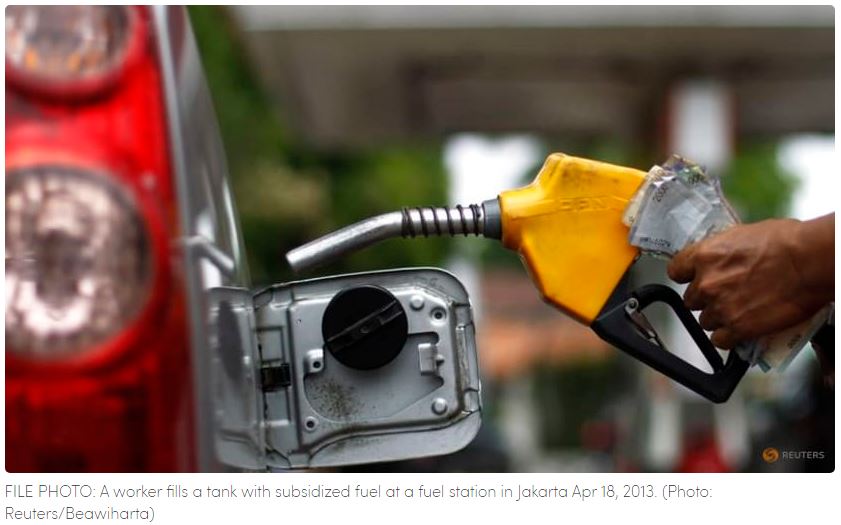Indonesia can raise fuel subsidies without widening deficit: Finance ministry
JAKARTA: Indonesia has room to increase fuel subsidies without widening its budget deficit beyond a projected maximum of 4.85 per cent of gross domestic product, thanks to windfall revenue from high commodity prices, a finance ministry official said on Thursday (Mar 17).
Indonesia has kept prices of its most widely consumed fuels unchanged despite a spike in global oil prices amid a war between Russia and Ukraine.
Febrio Kacaribu, head of the ministry’s fiscal policy office, said existing subsidies in the 2022 budget will have to be increased in response to rising energy prices.
The government was assessing a number of scenarios but it expected the 2022 fiscal deficit to come in below 4.85 per cent by year’s end, as strong revenues would partially offset any subsidy hike, he said in a conference call with investors.
Febrio did not provide details.
Indonesia is a major exporter of palm oil, coal, nickel, copper, and tin among other commodities.
The Southeast Asian country has allocated 134 trillion rupiah (US$9.37 billion) for energy subsidies this year, including for electricity. Separately, it also compensates state oil firm Pertamina for losses stemming from some fuel sales.
Government revenue jumped 54.9 per cent on a yearly basis in January, boosted by strong exports, while spending dropped 13 per cent, giving the finance ministry a US$2 billion surplus, according to ministry data.


 Thailand
Thailand




